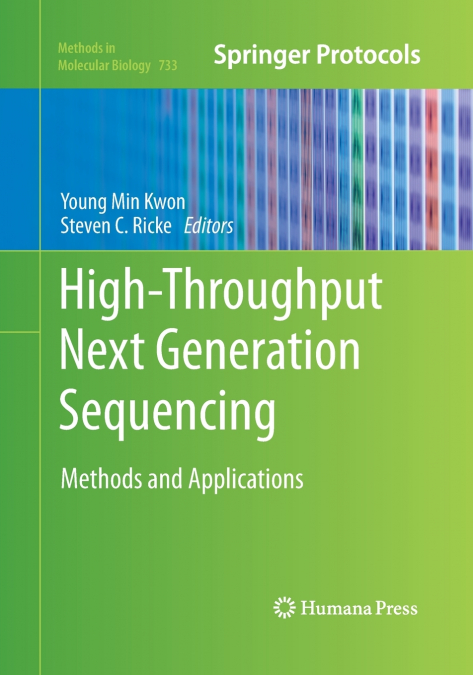
Due to their novel concepts and extraordinary high-throughput sequencing capacity, the 'next generation sequencing' methods allow scientists to grasp system-wide landscapes of the complex molecular events taking place in various biological systems, including microorganisms and microbial communities. These methods are now being recognized as essential tools for a more comprehensive and deeper understanding of the mechanisms underlying many biological processes. In High-Throughput Next Generation Sequencing: Methods and Applications, experts in the field explore the most recent advances in the applications of next generation sequencing technologies with an emphasis on microorganisms and their communities; however, the methods described in this book will also offer general applications relevant to the study of any living organisms. Written in the highly successful Methods in Molecular Biology™ series format, chapters include introductions to their respective topics, lists of the necessary materials and reagents, step-by-step, readily reproducible laboratory protocols, and key tips on troubleshooting and avoiding known pitfalls. Comprehensive and cutting-edge, High-Throughput Next Generation Sequencing: Methods and Applications is an excellent collection of chapters to aid all scientists who wish to apply these innovative research tools to enhance their own pursuits in microbiology and also biology in general.